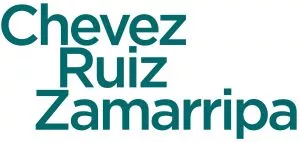Today was published in the Federal Official Gazette the First Amendment to the Miscellaneous Tax Resolutions for 2016 and its Annexes 1-A, 23 y 27; in general terms, its content will enter into force starting April 2, 2016.
This publication modifies the rules concerning Energy and Infrastructure Investment Trusts (FIBRA-E, per its acronym in Spanish) that were included in the Miscellaneous Tax Resolutions on September 2015, which we discussed in our News Flash 2015-2.
According to what has been stated by the Mexican tax authorities, through these new rules is sought both to clarify some issues of the previously published rules, as well as to create a regime that is more appealing for all participants in a FIBRA-E.
Deferred gains
When the FIBRA-E regime was created, it established that in case of obtaining a gain on the sale of the shares of a promoted entity, the seller was required to consider as taxable income such gain, in its entirety in the tax year in which the sale took place.
These new rules establish a regime that allows temporarily deferring the gain obtained by the sellers of the shares of the promoted entities in favor of the FIBRA-E, to the extent they receive as consideration certificates issued by the FIBRA-E. This gain shall be considered by the sellers as taxable income at a 15% rate each year, starting the year when the shares are sold in favor of the FIBRA-E.
The outstanding deferred gain shall be considered as taxable income in advance in the year when any of the following assumptions happen, whichever occurs first: (i) the certificates received by the seller are sold, (ii) the FIBRA-E sells the shares of the promoted entity or, (iii) the promoted entity sells the assets.
Non-deductibility of certain payments to exempt taxpayers
In order to compute their annual tax result or loss, the promoted entities shall not be able to deduct payments made for the use or enjoyment of land or constructions, in favor of persons that are not required to pay Mexican income tax.
Exempt sales
It is clarified that foreign residents that sell certificates issued by a FIBRA-E will be exempt from Mexican income tax on the sale of those certificates, provided they are placed among the general investing public and sold through recognized markets.
Tax cost basis of the shares
It is established that in case a FIBRA–E sells the shares issued by the promoted entities, such FIBRA-E shall consider as tax cost basis of those shares, the price that it paid when acquiring them, subtracted with the amount of the deferred expense determined at the time of acquisition, which is or would have been deductible for the FIBRA-E.
Control of contributions and distributions
It is established that the trustee shall keep the record of a Paid-in-capital account (CUCA, per its acronym in Spanish), without individualizing it for each certificate holder. The balance of the CUCA account will be increased with the aggregate contributions made in cash or in kind to the trust and it will be subtracted with the capital reimbursements made by the FIBRA-E.
For such purposes, the distributions that a FIBRA-E makes that exceed the amount of the distributed tax result, shall be considered as capital redemptions. Distributions arising from the CUCA account shall not be treated as taxable income for the certificate holders. However, once the balance of the CUCA account is depleted, certificate holders shall consider the exceeding distributions as taxable income, according to their corresponding tax regime.
Distributions arising from the CUCA account will reduce the tax cost basis that the certificate holders have in them, irrespective of the nominal value those certificates had when issued.
Repurchase of certificates
A FIBRA-E is allowed to repurchase the certificates it issued, to the extent:
- The certificates are acquired with funds corresponding to the remaining 5% of the taxable income that the FIBRA-E was not required to distribute.
- The value of the investment maintained by the FIBRA-E in the repurchased certificates, in securities payable by the Federal Government or shares issued by mutual funds in debt instruments shall not exceed 30% of the average annual value of the assets of the trust.
- It complies with the tax rules applicable for legal entities for the repurchase of shares.
A FIBRA-E shall consider the returns generated by the repurchased certificates, during the holding period, to determine the taxable income that will be distributed among the certificate holders.
Clarification of exclusive activities
Within the exclusive activities that may be carried out by promoted entities is included the treatment, mixing, processing, conversion and transportation of oil and petrochemicals or any product derived from oil or natural gas.
There are also included the transportation, storage and distribution of hydrocarbons, even when carried out inside the perimeter of a contractual or assignment area, provided that in the latter case such activities are not made under a contract or assignment.
Definition of new assets
The definition of new assets is modified, stating that they are those that have been put to use for less than 12 months in Mexico, regardless of the moment when they were acquired by the legal entity.
Likewise, the concept of the assets that should not be contemplated as new assets for purposes of the FIBRA-E is broadened, according to the following:
- Besides those that are acquired, the concept includes those that are "built" within the ordinary course of operation of the business and that have the purpose of repairing, adapting or replacing assets or when they are no longer useful for obtaining income.
- All those that are acquired or built with the purpose of fulfilling the obligations undertaken under a concession for carrying out the exclusive activities of promoted entities regarding infrastructure activities, to exercise rights derived or related to the corresponding concession, as long as the legal entity had the nature of a concessionaire under such concession, for at least 12 months before starting said investments.
- The investments carried out in relation to an asset through which the exclusive activities related with hydrocarbons or electricity were carried out, at least for 12 months by the promoted entity, as long as these additional investments are considered as part of the same permit granted by the Energy Regulation Commission.
It would be necessary to obtain authorization by the Mexican tax authorities in order to exclude investments made under b) and c) above from the 25% limitation of investments on new assets.
Tax-free demergers ("escisiones")
Regarding tax-free demergers, the percentage of the voting shares issued by a demerged company that must be acquired by a FIBRA-E is reduced from 5% to 2%, in order not to breach the shareholding ownership requirement and, therefore, maintain their tax-free status.
In addition to applying this provision in connection with energy assets, this benefit now also includes demergers carried out in relation to infrastructure assets. Likewise, it is clarified that this benefit will be applicable to demergers where assets related to energy and infrastructure are transferred to newly-created companies ("escindidas"), as well as to demergers where said assets are kept by the original companies ("escindentes").
Contribution of shares issued by promoted entities
A tax-free transfer may be achieved, subject to prior authorization by the Mexican tax authorities, regarding shares issued by Mexican tax resident legal entities that have land, fixed assets and/or deferred expenses destined to energy and infrastructure activities when such shares are contributed into another Mexican tax resident legal entity.
Among other requirements, in order to apply this exception, a FIBRA-E must acquire at least 2% of the voting shares issued by the legal entity to which the shares were contributed, within a period of 6 months.
The legal entities that receive the abovementioned shares as a contribution, will consider as their acquisition cost, the tax cost basis that the prior shareholders had at the moment of the transfer.
Contribution of goods to promoted entities
Since the creation of the FIBRA-E regime, it was established that the transfer of land, fixed assets and deferred expenses for activities related to hydrocarbons and generation, transmission or distribution of electric energy, shall not be considered as transfer for federal tax purposes, provided certain requirements were met; however, this benefit was not included for assets related to infrastructure.
Through this modification, the contribution of land, fixed assets and deferred expenses destined to all the activities subject to the FIBRA-E regime, including those related to infrastructure shall not be considered as a transfer of goods for federal tax purposes.
The content of this article is intended to provide a general guide to the subject matter. Specialist advice should be sought about your specific circumstances.

